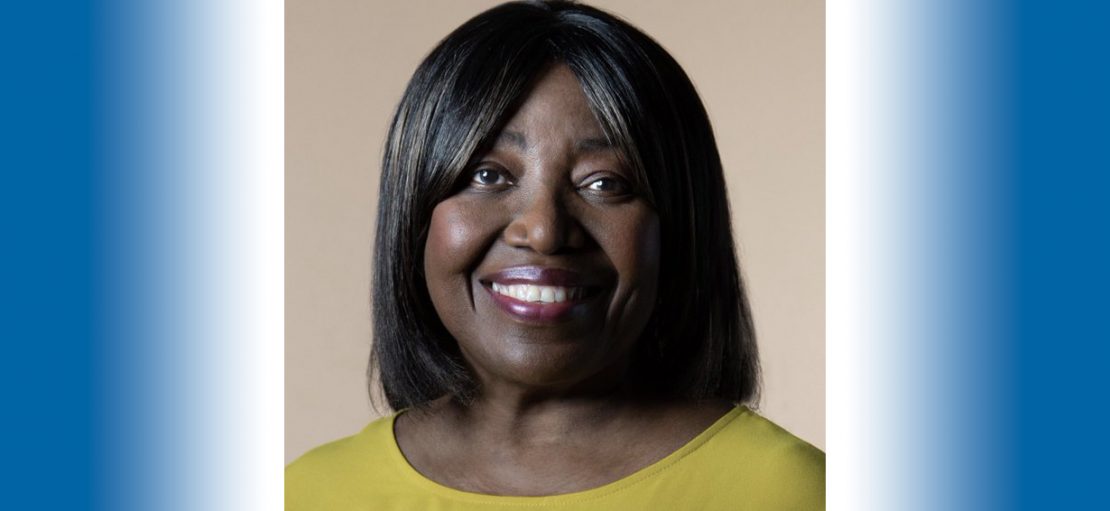June M. McKoy, MD, MPH, JD, MBA, LLM (Hons), is a board-certified geriatrician and oncology researcher with a broad field of experience spanning health care, law, public health, patient advocacy and clinical research. She is currently Professor of Medicine, Preventive Medicine and Medical Education at Northwestern University Feinberg School of Medicine in Chicago, where she also holds a joint appointment in the Robert H. Lurie Comprehensive Cancer Center as the Assistant Director for Diversity, Equity and Inclusion. Dr. McKoy joined the ABIM Geriatric Medicine Board in July 2022.
You have a unique educational background for a physician. How did you come to enter geriatric medicine?
My interest in geriatrics grew from having wonderful grandparents who helped my parents raise me. They are at the core of my life with older adults. I went to law school to become an advocate for older adults after being disillusioned by my brief experience in managed care, seeing older adults mistreated, discharged too early, and shunted around. During my law school training I had an elder law professor who encouraged me to combine my work in law with medicine and pursue a Geriatrics fellowship, and that’s what I did.
Why did you want to join the ABIM Geriatric Medicine Board?
We need policy changes that will be broadly impactful for older adults. There is no better way to advocate for patients than through policy, through an organization that is esteemed and respected by policy makers, legislators, training hospitals, and managed care facilities. My role is not only ensuring we keep physicians up to standards as they pertain to treating patients, but also helping to effectuate policies that will be far-reaching, forward-thinking and visionary, in order to ensure better outcomes for older adult patients.
What are the major issues facing geriatricians and geriatrics today?
The major issue is the fact that there are not enough of us. Hundreds of geriatricians are retiring, and many have left early because of issues of reimbursement, treatment by healthcare organizations, and changes in long term care facilities. My concern is how we can find a way to excite more residents to enter geriatrics. How can we get the government to consider that the population is aging dramatically? By 2030 there will be more older adults than people under the age of 17. It is in our best interest to make sure there are board certified physicians taking care of us. If policies impacting students’ decisions to enter the field can be changed at the legislative level, it might provide an incentive for those who love geriatrics to enter it.
What do you want to focus on as a member of the Geriatric Medicine Board?
I’d like to get more of my colleagues to seek board certification. I am the Program Director for the Geriatric Medicine Fellowship at McGaw Medical Center, and long before I joined the ABIM Geriatric Medicine Board, I made it mandatory that our fellows be certified in geriatric medicine within one year of graduation from the fellowship. We believe it is critically important for older adult health outcomes that we have the very best and brightest physicians taking care of them. When I think about “best and brightest,” I think board certified. It is a measure that tells me someone is prepared and is staying updated. We need doctors who understand physiologic and psychosocial aging changes and take on this very complex and challenging population with the best possible tools.
If we carry out the vision of ABIM as certified geriatricians, teaching and tasking physicians to uphold the highest standard of excellence in geriatrics, I think we will make inroads into how older adults are viewed and treated.
How does your work as a geriatrician overlap with your interest in oncology?
I’ve been an oncology researcher since I was a geriatrics fellow at McGaw Medical Center. One of my research foci relates to adverse drug reactions pertaining to older adults living with cancer. For the average older adult, co-morbid illnesses come with time—there are changes that occur to all of us that are aging-related, and cancer is a disease of aging. As people get older, the burden of cancer increases. When we approach the care of older adults with cancer, we must do so methodically, individualistically and against the backdrop of evidence-based medicine steeped in board certification.
Something I am proud of is the work I have been able to do as member of a panel of geriatricians and oncologists invited and tasked by the National Cancer Institute with understanding why we do not have more older adults enrolled in clinical trials for cancer. We wrote a white paper and a manuscript on our conclusions and are anticipating publication of the manuscript in the Journal of the National Cancer Institute. The manuscript will provide a roadmap for all oncologists doing clinical trials: new drugs, new therapies, how trials should be run, recruitment strategies, how physicians should be dosing—it is comprehensive and a contribution that will outlive us. Most importantly, geriatric patients with cancer will more likely receive a drug that was tested on people like them, in their age group with comparable comorbidities, and which will arguably result in better outcomes.
Could you talk about your work in diversity, equity and inclusion, and how you can make an impact through ABIM?
My being on the Geriatric Medicine Board is a testament to ABIM’s commitment to diversity. We are living in a diverse world and ABIM is committed to diversity in its governance structure at all levels.
There have been generations of distrust around medical organizations. Physicians of color were not welcome in the American Medical Association (AMA) for more than a century, and were not present on its board. As a result, people turned away from organizations like the AMA and the ABIM. As a physician who is underrepresented in medicine (UIM), I am pleased with the direction that the ABIM has taken over the past few years. DEI analysis of the certification exams, provision of implicit bias training for item writers and examiners, and exploration of the role of certification in redressing structural racism are reassuring changes. I will use this board opportunity to continue to encourage my UIM colleagues to become and remain board certified. Board certification provides access to resources that could have positive impacts on our communities. Given that UIM physicians are more likely to treat patients from their own minority groups, increasing board certification among UIM physicians could result in decreasing healthcare disparities community-wide in the short and long term.
What do you want diplomates to know about you?
I want them to know the passion I have for older adults—it is a singular, focused, unwavering passion. I support the older adult community unequivocally. A lot of my work is focused on increasing the visibility of older adults on a national scale. My patient advocacy is multi-focused and occurs in any space in which I am given the opportunity to speak, not just as a clinician but also as a Governance member and a geriatric oncology researcher.
My training has put me in a unique position to utilize the law, medicine, public health and my business acumen to sit at any table and speak with anyone, but I carry my patient hat with me everywhere I go. Patient advocacy: that is my purpose and my intent.



